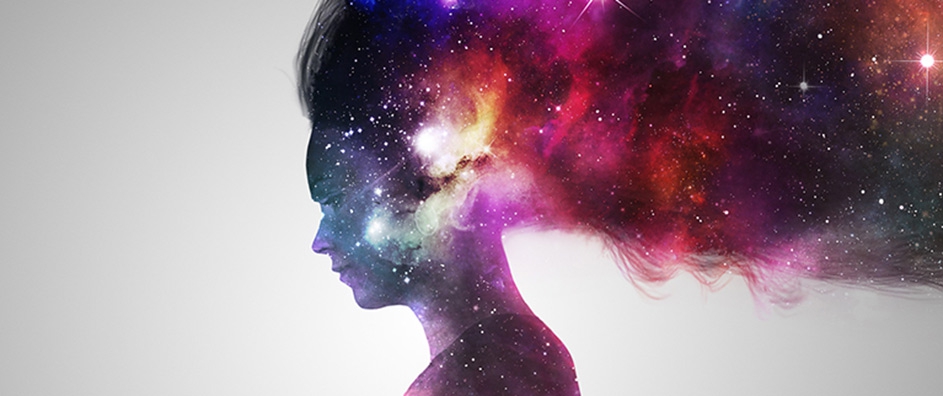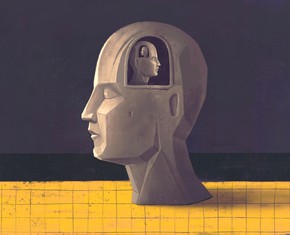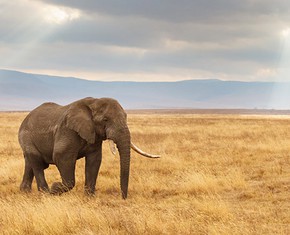The views expressed in our content reflect individual perspectives and do not represent the authoritative views of the Baha'i Faith.
Who was the first female scientist? When did women enter the arena of science, so long the sole purview of men?
The answer might surprise you. En Hedu’anna, chief astronomer priestess of the moon goddess of the Babylonian area of Akkad, appointed to her post by her father, Sargon of Akkad, is the first female scientist whose name is officially recorded:
The true woman who possesses exceeding wisdom,
She consults a tablet of lapis lazuli
She gives advice to all lands…
She measures off the heavens,
She places the measuring-cords on the earth.
– En Hedu’anna, astronomer priestess of the Moon Goddess, circa 2354 BCE.

Sculpture of En Hedu’anna
When we think of astronomers, rarely do the names of women come quickly to mind. But they were always there, probably even preceding En Hedu’anna. Women looked up at the stars and wondered, just like men did.
When it comes to firsts, German-born Caroline Herschel, an 18th/19th century astronomer, recorded several. In 1786 she became the first woman to discover a comet. She went on to discover six more. Full credit goes to her for five of those seven comets, and several are named for her.
On learning of these achievements, King George III authorized her an annual salary of 50 pounds, thereby making her the first woman in England to ever be paid for her scientific work.
In 1828 Britain’s Royal Astronomical Society, which had published Herschel’s star catalogues in 1799, honored her with their highest award for her catalogue of nebulae—the first woman to receive their gold medal, which did not go to another female until Vera Rubin earned it in 1996. Herschel not only catalogued nebulae, but the woman fascinated by the heavens discovered a number of them herself.
In 1832, her achievements won her a medal from the King of Denmark. In 1835, Caroline Herschel and the Scottish astronomer Mary Somerville were designated as members, albeit “honorary” members, of the Royal Astronomical Society. Though it was honorary due to their genders, still they were the first women to achieve such status.
Herschel suffered the lifelong effects of smallpox and typhus, leaving her with a scarred face, disfigured eye, and stunted growth. She stood 4’3″ tall, at the most. An intelligent woman seemingly destined to be an old maid, she happily, at age 22, accepted her brother William’s invitation to join him in England.
William, like his father, was a musician with a penchant for astronomy. Eventually the science won out and he pursued it full-time, teaching it to his sister, along with mathematics. Caroline, who was training for a singing career, became just as enthused with the skies as her brother and, as he did, gave herself up entirely to a study of the stars, once noting, “However long we live, life is short, so I work. And however important man becomes, he is nothing compared to the stars. There are secrets … and it is for us to reveal them.”
Both switched from being professional musicians with a hobby in astronomy to becoming astronomers with music as their hobby. William and Caroline pursued the modern as opposed to the Ptolemaic school of astronomy, and made an enormous contribution to our unfolding knowledge of the universe.
Abdu’l-Baha said of this new day of God ushered in by the Bab and Baha’u’llah:
Sciences and arts are being molded anew. Thoughts are metamorphosed. The foundations of human society are changing and strengthening. Today sciences of the past are useless. The Ptolemaic system of astronomy and numberless other systems and theories of scientific and philosophical explanation are discarded, known to be false and worthless. – Abdu’l-Baha, The Promulgation of Universal Peace, p. 144.
Know then that those mathematical questions which have stood the test of scrutiny and about the soundness of which there is no doubt are those that are supported by incontrovertible and logically binding proofs and by the rules of geometry as applied to astronomy; that are based on observations of the stars and careful astronomical research, and are in conformity with the principles of the universal themes expounded in the divine sciences. For it is by applying the outward world to the inner, the high to the low, the small to the large, the general to the particular that, with abundant clearness, it becometh apparent that the new rules arrived at by the science of astronomy are in closer accord with the universal divine principles than the other erroneous theories and propositions … – Abdu’l-Baha, Tablet of the Universe (provisional translation).
After William’s death in 1822, Caroline returned to her childhood home in Hanover. She was then 72 years old, yet she continued her life’s work. At the age of 96 her lifetime achievements were recognized with the award of the King of Prussia’s Gold Medal for Science “in recognition of the valuable services rendered to Astronomy by you, as the fellow-worker of your immortal brother, Sir William Herschel, by discoveries, observations, and laborious calculations.”
She died the following year.
But the Essence of Divinity, the Sun of Truth, shines forth upon all horizons and is spreading its rays upon all things. Each creature is the recipient of some portion of that power, and man, who contains the perfection of the mineral, the vegetable and animal, as well as his own distinctive qualities, has become the noblest of created beings. It stands written that he is made in the Image of God. Mysteries that were hidden he discovers; and secrets that were concealed he brings into the light. By Science and by Art he brings hidden powers into the region of the visible world. – Abdu’l-Baha, Abdu’l-Baha in London, p. 23.
Such a one was Caroline Herschel.
You May Also Like
Comments

















Out of the physical sciences astronomy actually has one of the highest proportions of women (~30%). There are and have been many more since Herschel. One who comes to mind for both her scientific&religious devotion is Jocelyn Bell Burnell...
As much as I appreciate a post about female scientists, only having two names mentioned in the text is a sad indication of the general public's awareness of the role and impact of women in science (this isn't a criticism of the author but of society). ...As a female astronomer myself, whose supervisor is a women, who cites many papers by female astronomers, whose female friend just got her PhD - I hope this will soon change!
(Should have secured ethical guideline clearance first)
1678: Elena Corner Piscopia, first woman to earn a doctorate of philosophy at a 'western" university
1732: Laura Bassi, second woman to earn a doctorate of philosophy at a "western" university, went on to be Professor of Physics at the University of Bologna. She had a teaching appointment at Bologna, but could give only one public lecture each year because she was female; she taught students in her own home.
1678 is only about 40 years after the founding of the first scientific societies in Europe.